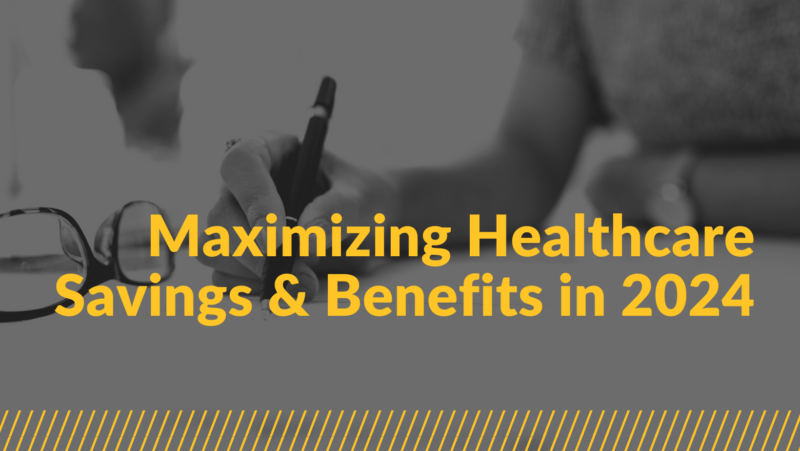Maximizing Healthcare Savings & Benefits in 2024
Staying informed about the ever-changing landscape of healthcare regulations is crucial, especially when it comes to managing your finances and maximizing your benefits. Our team at Shepherd Insurance is here to bring you the latest updates and analysis on the ever-evolving world of healthcare regulations. In this blog post, we’ll outline some exciting news that the IRS has just released, including the increased limits for health savings accounts (HSAs) and high deductible health plans (HDHPs) in 2024. These changes have significant implications for individuals and families who rely on these accounts to manage their healthcare expenses. This blog will explain what these updates mean for you as a consumer and how to make the most of these opportunities.
HSA/HDHP Limits Increase for 2024
On May 16, 2023, the IRS released Revenue Procedure 2023-23 to provide the inflation-adjusted limits for health savings accounts (HSAs) and high deductible health plans (HDHPs) for 2024. The IRS is required to publish these limits by June 1 of each year.
These limits include the following:
- The maximum HSA contribution limit
- The minimum deductible amount for HDHPs
- The maximum out-of-pocket expense limit for HDHPs
These limits vary based on whether an individual has self-only or family coverage under an HDHP.
Eligible individuals with self-only HDHP coverage will be able to contribute $4,150 to their HSAs in 2024, up from $3,850 in 2023. Eligible individuals with family HDHP coverage will be able to contribute $8,300 to their HSAs in 2024, up from $7,750 in 2023. Individuals aged 55 or older may make an additional $1,000 “catch-up” contribution to their HSAs.
The minimum deductible amount for HDHPs increases to $1,600 for self-only coverage and $3,200 for family coverage in 2024 (up from $1,500 for self-only coverage and $3,000 for family coverage in 2023). The HDHP maximum out-of-pocket expense limit increases to $8,050 for self-only coverage and $16,100 for family coverage in 2024 (up from $7,500 for self-only coverage and $15,000 for family coverage in 2023).
The IRS also provided the inflation-adjusted limit for excepted benefit health reimbursement arrangements (HRAs). For plan years beginning in 2024, the maximum amount that may be made newly available for an excepted benefit HRA is $2,100 (up from $1,950 for 2023).
IRS Addresses Claims Substantiation for FSAs
The IRS recently issued a Chief Counsel Advice Memorandum that provides important reminders about the claims substantiation requirements for flexible spending accounts (FSAs). These requirements apply to FSAs that reimburse medical expenses (health FSAs) and FSAs that reimburse dependent care expenses (dependent care FSAs).
The IRS memorandum explains that FSA expenses are not considered properly substantiated if employees self-certify expenses, if the plan uses sampling, if only amounts over a certain level is substantiated, or if charges from favored providers are not substantiated.
In addition, dependent care expenses may not be reimbursed before the expenses are incurred. Dependent care expenses are incurred when the care is provided and not when the employee is formally billed or charged for (or pays for) the dependent care.
Reimbursements from FSAs that are not fully substantiated must be included in the employee’s gross income. Also, if a Section 125 cafeteria plan does not comply with the substantiation requirements for FSAs, the plan will no longer qualify for favorable tax benefits. To avoid these negative tax consequences, employers with FSAs should review their substantiation procedures to make sure they comply with IRS rules.
Maximizing Healthcare Savings & Benefits in 2024
The recent announcement by the IRS regarding the increased limits for HSAs and HDHPs in 2024 signifies the evolving nature of healthcare policies and emphasizes the need for proactive decision-making. Furthermore, the Chief Counsel Advice Memorandum serves as a timely reminder for employers to review and align their FSA substantiation procedures with IRS rules to avoid any unwanted tax consequences. We hope this information provides valuable insights and practical knowledge to navigate these updates effectively and help you maximize your healthcare savings and benefits in 2024.
If you want to learn more about the latest industry updates, feel free to contact us at Shepherd Insurance for further guidance and insurance advice. Stay tuned for more informative content as we continue to keep you updated on all things related to healthcare and insurance.


